2022 Census
2022 Census: IBGE presents characteristics of quilombolas and opens fourth branch of Casa Brasil IBGE, in Juiz de Fora (MG)
May 09, 2025 04h28 PM | Last Updated: May 12, 2025 02h41 PM

The Brazilian Institute of Geography and Statistics (IBGE) released, on Friday (9), at 10 am, data from the 2022 Population Census: Quilombolas – Main characteristics of persons and of housing units, by urban or rural housing units, with population results. The press conference was held at the Sciences Center of the Federal University of Juiz de Fora (UFJF), at the University Campus, in Juiz de Fora (MG). The event was attended by 300 people, including professors, students, authorities, IBGE employees, and other guests, being streamed live on Digital IBGE and on the Institute's social media channels. Click here to watch the video.
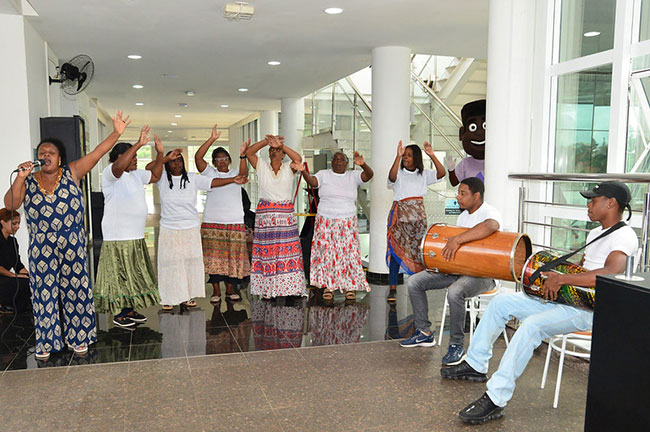
Before the press release on the results, the IBGE opened at 9 am, at the Sciences Center of UFJF, the fourth branch of Casa Brasil IBGE, in the city of Juiz de Fora (MG), a place for memory and technology that gathers in a single place the many departments of the IBGE and that is present in branches in Rio de Janeiro (RJ), Recife (PE) and Belém (PA).

In a video message, the president of the IBGE Marcio Pochmann commented on the existence of that branch in a city that, differently from the others, is not a capital. “Juiz de Fora is a very important city, a regional hub, and, with this partnership, civil servants, professors, students and public managers have faster and more effective access to the information produced by the IBGE, basic data for one to understand how our country works.".
The rector of UFJF, Girlene Alves da Silva, complimented all the participants and highlighted the role of data produced by the IBGE, which “show us the importance of people dealing with public policies having also people in mind and of having regular funding. We thank the IBGE for this partnership.”
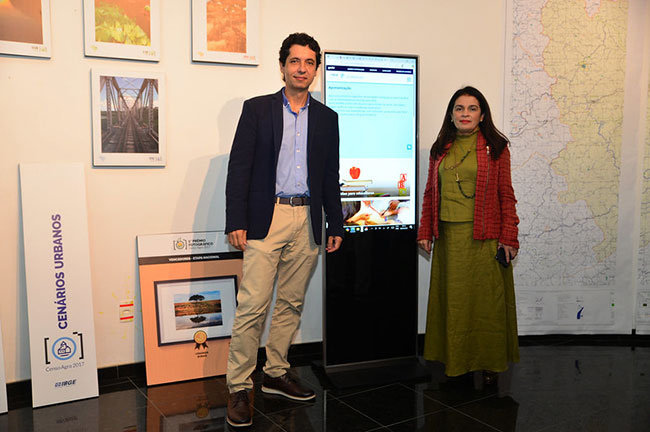
Some of the participants were the director of Geosciences, Maria do Carmo Bueno, the deputy director of Surveys, Vladimir Miranda, the General Coordinator of Documentation of Dissemination, Daniel Castro, the Population Census coordinator, Giulia Scappini, the head of the IBGE Branch in Juiz de Fora, Julio Cesar Gomes Graça, and other employees. Besides rector Girlene Alves da Silva and vice-rector Telmo Ronzani, professors and researchers were other representatives of UFJF at the event.
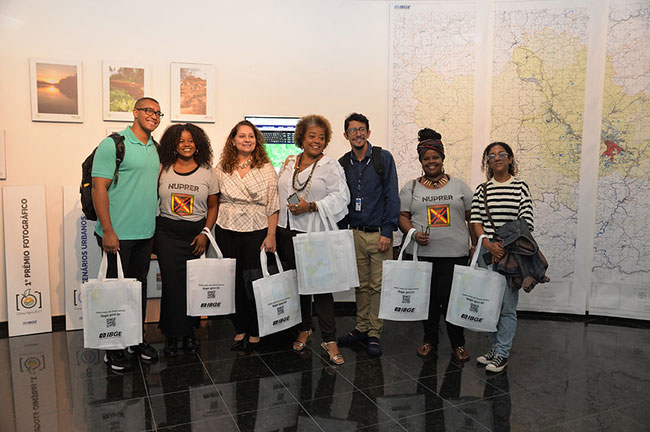
Also attending the event were the special secretary for racial Equality in Juiz de Fora, Giane Almeida, the director of Affirmative Action of UFJF, Danielle Teles, the professor and education specialist from the Colônia do Paiol quilombola community, Maria José Santana (Mestra Zezé), besides quilombola and black movement leaders, among other authorities.
The release of results was presented by the technical manager of the IBGE's Technical Project on Traditional Peoples and Communities, Marta Antunes, and the Manager of Traditional Territories and Protected Areas of the Territory Organization Division, of the Directorate of Geosciences (DGC), Fernando Damasco. The publication presents, for the first time, a series of topics analyzed by rural or urban housing unit, exclusively for the quilombola population. The topics include sex and age, literacy, birth records, besides characteristics of housing units with at least one resident regarding sanitation, household composition and reported deaths. See the results here.
Vladimir Miranda highlighted the relevance of having results released in a federal university. “They play a valuable role in helping the IBGE improve its methodologies, with their cooperation. Above all, we are proud to present information after a Census operation marked by difficulties, such as the pandemic and the high occurrence of fake news. It is important to present data on quilombolas, it is a lasting demand from society to represent such a traditional population,", said the deputy director of Surveys.
Maria do Carmo Bueno spoke about the Census as a portrait of the population's reality in our country and how the “IBGE has made advances in the 2022 Population Census, since we have brought data about the quilombola population for the first time. We hope to improve and portray other traditional communities."
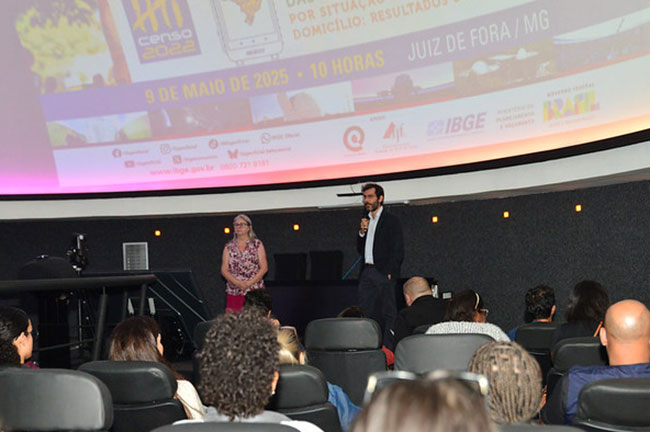
Giulia Scappini, technical coordinator of the Census, defined the release as a "historical landmark in the production of official statistics in Brazil. it is the first time we show a wide set of data by territory on quilombolas, covering the entire national territory where data were collected for the Census. This result was only possible thanks to a big and solid data collection network."
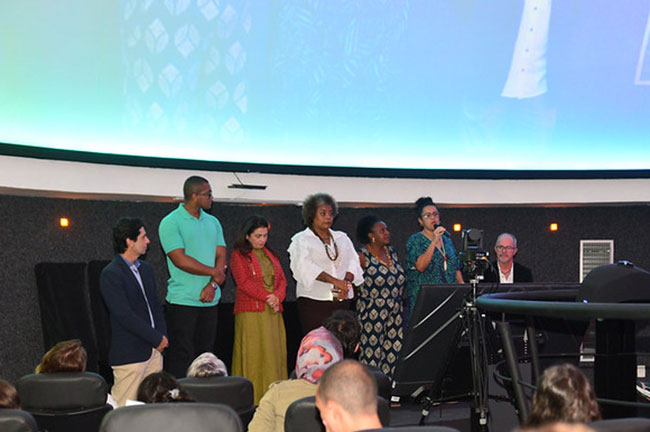
The special secretariat for Racial Equality in Juiz de Fora, Giane Almeida highlighted the fact that public policies require access to data. “Our secretariat exists so that data can exist and these policies rise from the combined activities of this special secretariat and others that deal with leading issues, such as Education and Heath.”
Danielle Telles highlighted the important relationship between the university and the IBGE and with the quilombola community “to build policies that fulfill the real needs of the population and, above all, based on which the quilombola population becomes a protagonist. We should listen carefully and attentively to the experiences shared by each quilombo."

Mestra Zezé remarked on the significance of events such as this one to show the life of quilombola communities. “These data are very important because they show society information about quilombolas, and increase our visibility. Now we can speak about our history and have better access to public policies."
The event also had two cultural presentations: the drum group Trovão da Roza, which brings together Maracatu and the history of Roza Cabinda, a Black woman who, when freed, became a symbol of resistance in Juiz de Fora; and the group of women from the Quilombo do Paiol community that uses singing as a tool to preserve their roots.




















